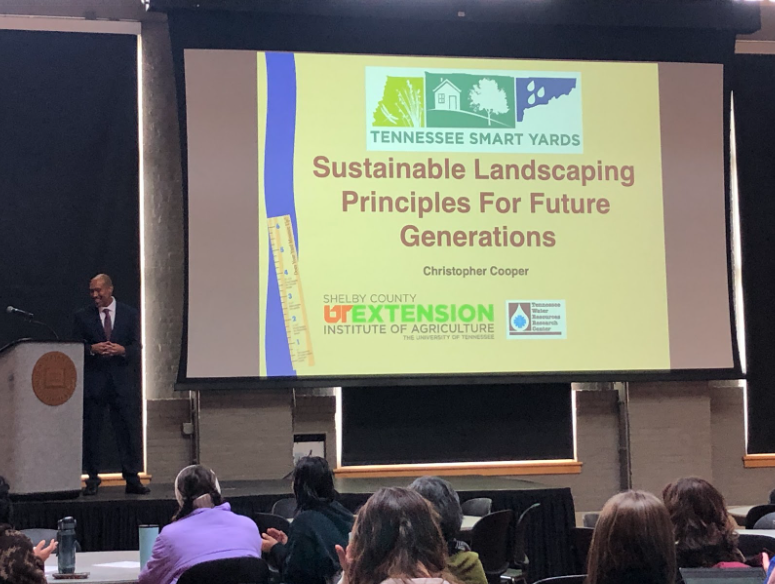On January 17th, the Hansen Student Center celebrated the 20th anniversary of the event Martin Luther King Jr. Day Teach-In. Three speakers were featured between 1- 4 p.m. that talked about Bending the Arc Toward Justice.
At 1 p.m., Dr. Cedric Taylor presented “Telling the Untold: Documentary Story and Environmental Justice in MLK Jr.’s Legacy.” Dr. Chris Cooper followed by presenting “Sustainable Landscaping Principles for Future Generations.” Chloe Bell, a graduate of Illinois Wesleyan University (IWU) in 2019, concluded the ceremony with “Redlining, Then and Now: The Lasting Impact of Housing Discrimination on Industrial Development, Environmental Injustice, and Land Use.”
Focusing on one presenter, Dr. Chris Cooper’s presentation began with light refreshments, pastries, and warm beverages. He was introduced by the commissioner of the diversity and inclusion committee at IWU, Mannat Kandal.
Kandal said, “His (Dr. Cooper’s) interest in agricultural sciences arose from his grandfather who owned a vegetable garden.”
Dr. Cooper started similar to Kandal by alluding to his roots. He mentioned how he was from Memphis, Tennessee, which is interesting considering Dr. King was assassinated in Memphis.
Dr. Cooper spoke on Dr. King’s legacy, “I live out Dr. King’s dream everyday by helping people, plants, and the planet.”
Dr. Cooper then presented about how people can practice sustainable landscaping procedures by referring to nine principles. Principle one was “Right Plant – Right Place.” He instructed that people need to know their plant zone and what temperatures plants in their area need to grow.
Dr. Cooper said, “Not only do we want plants to survive, we want plants to thrive.”
Principle two talked about managing soils and mulches in order to help plants grow. Dr. Cooper argued that plants will not grow if debris from concrete left in impoverished areas is allowed to infiltrate the soil. Principle three addressed appropriate turfgrass management to ensure that people use turf responsibility since turf is good for soil erosion, reduces noise pollution, and allows local community members to have fun.
Principle four targeted water efficiency. Dr. Cooper explained how certain irrigation systems are unethical since they waste water and money. If the irrigation systems do not water at the roots of plants, the water will be lost to evaporation. Principle five discussed the consequences of fertilizers. Fertilizer can runoff into storm drains, lakes, streams, and bays if it rains. Algae can grow as a result of this runoff, decreasing the amount of oxygen that fish can use to survive. Dr. Cooper urges people to test their soil before using fertilizer.
Principle six talked about managing yard pests, suggesting that people need to scout for pests and prevent infestations with natural controls such as horticulture oils instead of pesticides.
“Set your plants up for success,” Dr. Cooper said.
Principle seven was a goal to reduce stormwater runoff. Water can run into streets instead of being used for the environment, so people should direct downspouts to drain onto lawns, plant beds, and other poreous surfaces.
Principle eight asked people to provide for wildlife with one of the four basic elements: food, water, shelter, or a place to raise young, with water being the most important.
Dr. Cooper said, “Water is life. It is used for drinking, bathing, and reproducing.”
The last principle, principle nine, was to protect the water’s edge. Dr. Cooper urged listeners to do the best that they can with preventing the use of pesticides and fertilizers near water. He finished his speech alluding to Dr. King.
Dr. Cooper said, “We need to stop looking at land as commodity and think of it as community, which was something that Dr. King wanted. Dr. King wanted to plant seeds of community.”

